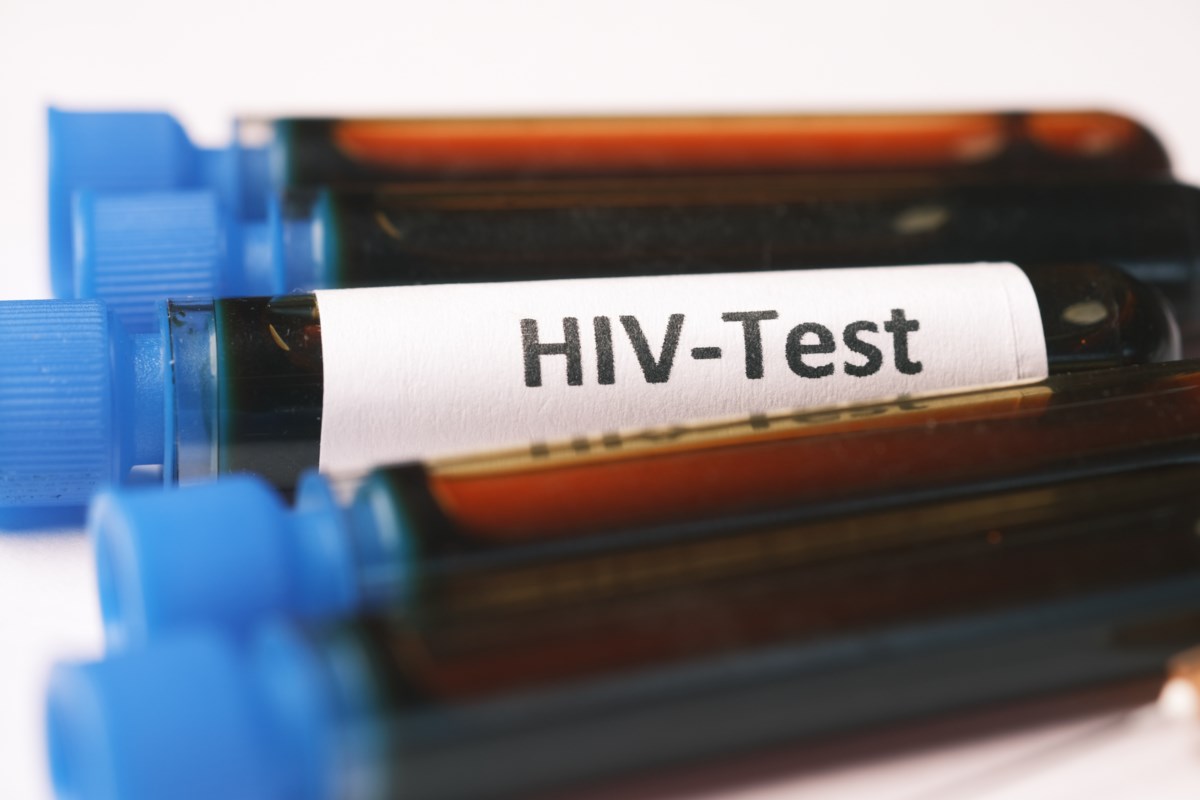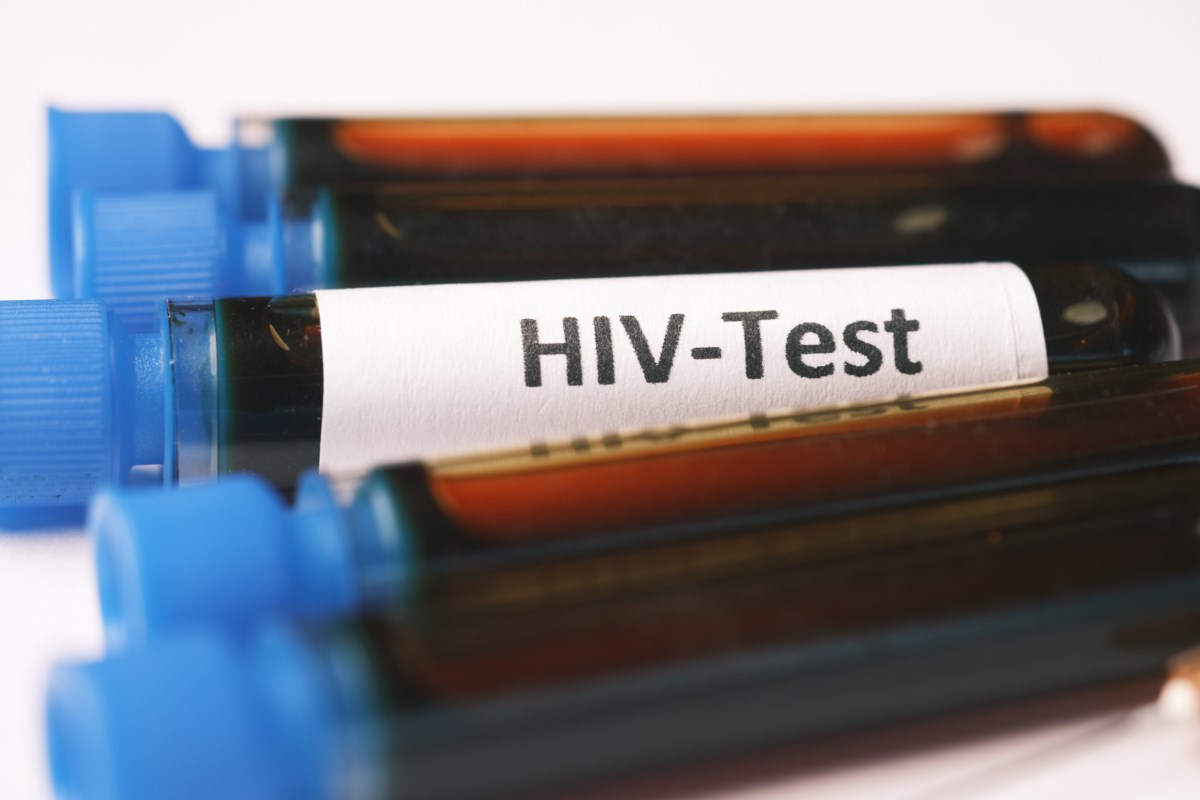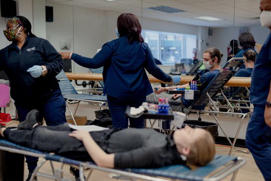
Jennifer Murphy is still reeling after serving a 39-month prison sentence and being placed on a sex-offender registry based on what advocates say was a misinterpretation of science.
“The law that was there to protect me was used against me,” Murphy said in a phone interview.
She no longer lives in the Barrie area for fear of persecution following her experience here.
Gerry Croteau, the Barrie Gilbert Centre’s executive director who has been working with Murphy for 20 years, suggested an enduring stigma around HIV/AIDS has resulted in a double whammy against her.
In August, the Ontario Court of Appeal overturned Murphy’s 2013 conviction, acquitting her of aggravated sexual assault in relation to a single incident of vaginal intercourse without disclosing to her partner that she was HIV-positive and not using a condom.
In its written decision in August, the appeal court panel found that fresh evidence establishes that developments in the science in relation to HIV transmission supports Murphy’s assertion that there was no realistic possibility of transmission of HIV, even if a condom was not used during intercourse.
Murphy had been under treatment and taking medication when she had the 2011 sexual encounter for which she was charged. Advocates say that clearly resulted in an undetectable viral load and was known at the time to pose an extremely small risk of transmission.
When she learned she was wanted, Murphy fled, leading to a concerted police pursuit, which included the circulation of an unflattering photo of Murphy. Along with the wanted story, it was widely published.
But her case had already captured widespread national attention. Murphy had previously been in trouble for the same thing. In 2005, she was convicted of failing to disclose her HIV status to two soldiers from CFB Borden, a military base located about 20 minutes west of Barrie.
In an analysis of the communication in the July 2005 issue of Blue Line, described as Canada’s national law enforcement magazine, the Canadian Armed Forces’ communications director at the time chronicled how the base put out word in 2005 and was surprised by ”an onslaught of media interest” that erupted as a result. The case, he wrote, was among “the most unique and challenging” the organization had ever faced.
Murphy’s subsequent prosecution in 2013 in Barrie followed a Supreme Court of Canada decision a year earlier that found people living with HIV had the duty to disclose their status before having sex.
Even in 2013, the science clearly indicated Murphy was non transmissible when she had sex, said Cecile Kazatchkine, who was among the protesters at the Barrie courthouse during Murphy’s trial.
Kazatchkine, a senior policy analyst at the HIV Legal Network, said Muphy’s is one of about 220 Canadian cases involving the criminal conviction of someone with HIV. The organization asserts Canada is known to be one of the world’s “hot spots” for the criminalization of people living with HIV.
“They were not ready at the time to admit that having an undetectable viral load in itself would automatically preclude criminal liability,” Kazatchkine said. “We already knew that was not the right interpretation of the science.”
Yet, Murphy points out, after her 2013 conviction, which has since been overturned, the Crown considered applying to have her declared a long-term offender, which can carry an indefinite prison sentence — an approach that was eventually abandoned.
In 2014, the year after Murphy’s conviction, Canadian scientists released a statement about the “poor appreciation of the science related to HIV” contributing to an overly broad use of the criminal law against those living with HIV in cases of HIV nondisclosure.
Despite advances in the treatment of HIV, those living with HIV are still facing challenges in the community, said Croteau from the Gilbert Centre. The Barrie not-for-profit supports people with HIV and individuals and families from the lesbian, gay, bisexual, transgender, and queer (LGBTQ) communities.
“We’re very careful and discrete about people who come to access services with us because we serve a population in this community,” Croteau said.
“Often times, it’s people who are HIV positive, it’s drug users, homeless, sex workers, so these folks are very vulnerable,” Croteau added. “A lot of people still don’t understand how HIV is transmitted and who are the most vulnerable.
“Gay men, men who have sex with men, are still representative of 46 per cent of new infections of HIV. But then there’s 54 per cent of others, some are straight, some are bi and some are injection drug users.”
There can be a general misunderstanding of the information, but Croteau points out there have been a lot of good things happening for those who are HIV-positive on the medical front.
The Canadian Coalition to Reform HIV Criminalization (CCRHC) has long been advocating for change to “the misguided law” on HIV nondisclosure. This past July, the federal government announced new community consultations with an eye to reform.
Canada has no law specific to nondisclosure, so the charge of aggravated sexual assault — an extremely serious criminal offence — has been used against those with HIV.
Advocates want the law to be strictly limited to those who intentionally transmit the virus.
The coalition has argued that Canada’s criminal law, which resulted in the criminal prosecution and incarceration of Murphy and others living with HIV, was unscientific and discriminatory.
There have been other acquittals since the appeal court’s finding involving Murphy last summer.
Last month, the Ontario Court of Appeal overturned the aggravated sexual assault conviction of a Toronto man who did not disclose his HIV-positive status to a sexual partner, also citing new evidence.
An online database of articles about Murphy, the police pursuit of her and her case compiled by the HIV Justice Network clearly suggests this is an aggrieved woman. But whether or not Murphy is pursuing the matter further in the courts, she would not say.
Murphy’s case “shows the tragedy of the current use of criminal law,” Kazatchkine said of her prosecution.







